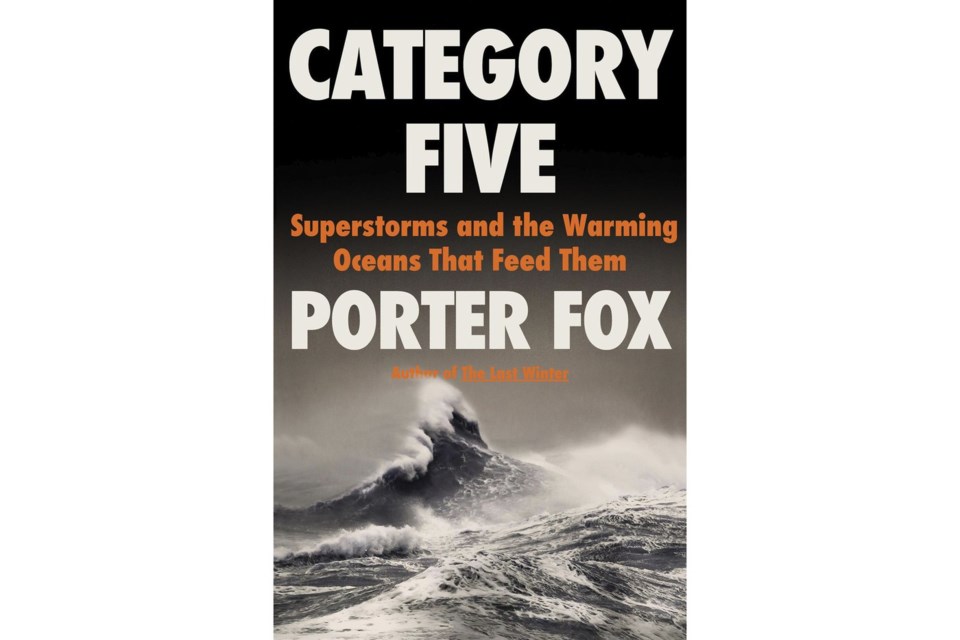I graduated from Middlebury College with Porter Fox just over 30 years ago. We werenŌĆÖt friends, but it was a small campus and everyone knew something about everybody else. I knew he sailed and wore L.L. Bean like a native Mainer. I didnŌĆÖt know that heŌĆÖd spend a good chunk of his career as a journalist documenting the effects of climate change.
ŌĆ£Category Five: Superstorms and the Warming Oceans That Feed ThemŌĆØ is a mouthful of a title, but thereŌĆÖs a lot packed into its 254 pages. Part memoir, part travelogue and part scientific reportage, itŌĆÖs stuffed with statistics that the cynical will say add up to one conclusion: This planetŌĆÖs doomed. But while the numbers donŌĆÖt lie and humanity is certainly going to exceed its self-imposed temperature targets to halt global warming, Fox has written a book that doesnŌĆÖt read like the sky is falling.
ThatŌĆÖs because he weaves all the science talk into a personal narrative, telling his own story about growing up on an island halfway up the Maine coast with a father who built sailboats for a living. ŌĆ£The sea was an enchanted forest when we were kids,ŌĆØ he writes. ŌĆ£We built shelters out of driftwood on a tiny island in the middle of the harbor, planted a flag, and declared it ours.ŌĆØ Fox opens the book with a prologue about being caught in a storm while sailing as a young man. ŌĆ£I did indeed grow up working on boats, but I never learned about storms, how to avoid them, or how to sail through them. They haunted me for most of my young life.ŌĆØ
The book then introduces readers to a variety of ŌĆ£salty marinersŌĆØ who share with Fox their lessons learned about navigating storms, their research into what causes them, and their predictions for the future of the climate. The jargon may sometimes have non-weather and boating enthusiasts Googling things like ŌĆ£katabatic squalls,ŌĆØ ŌĆ£violent siroccoŌĆØ or ŌĆ£mizzen,ŌĆØ but Fox grounds his writing with good stories, either from his own life, or told to him by the experts he interviews. ŌĆ£I will always live by the sea,ŌĆØ he recalls his father telling him when he was just a boy, then rhapsodizes about ŌĆ£the blank slate that the ocean represents, the lack of rules and obligation,ŌĆØ that calls to men and women who spend their lives on the water.
In the end, Fox argues, itŌĆÖs water that might actually save us, if the world would just start listening to oceanographers. The worldŌĆÖs oceans contain ŌĆ£95% of livable space on Earth,ŌĆØ and while their warming waters wreak all sorts of havoc on this planetŌĆÖs weather, they are also the ŌĆ£largest carbon sink on the planet.ŌĆØ ItŌĆÖs that sense of possibility, the ŌĆ£mystery of the deep,ŌĆØ that will give some hope. And itŌĆÖs books like FoxŌĆÖs ŌĆö climate science wrapped in a compelling narrative ŌĆö that can hopefully change habits, one reader at a time.
___
AP book reviews:
Rob Merrill, The Associated Press




